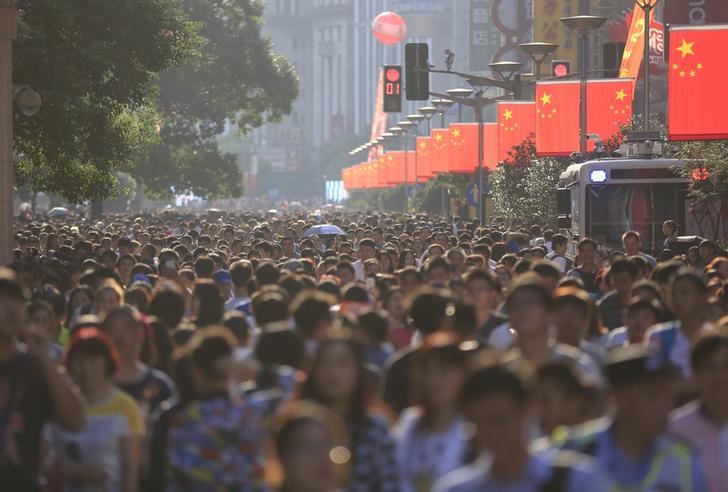Investing.com -- Markets are optimistic at the start of the week on hopes that the anti-COVID policy in China will soon end, allowing the world's second-largest economy to fully reopen.
The dollar fell as markets reopened, while oil benefited from hopes of a reopening in China, with WTI at $81.41 at the time of writing, up 1.8%.
Chinese markets are also in the green, with the Shanghai stock market index up 1.4%, while Hong Kong's Hang Seng is up 3.4%.
China's anti-COVID policy easing accelerates
Among the most significant evidence of China's accelerating reopening movement is that the cities of Shanghai and Hangzhou have eased some restrictions on COVID-19.
Shanghai's financial center will waive PCR testing requirements for entering outdoor public places, as well as for using public transportation starting Monday, city officials said in a statement Sunday. The statement said the measures "will continue to be optimized and adjusted" as the situation develops.
The city of Hangzhou also announced similar measures on Sunday, as did the city of Zhengzhou, home to Apple Inc's (NASDAQ:AAPL) largest manufacturing facility in China.
In other words, while no decisions have yet been made at the national level (other than a change in the vaccination program for the elderly last week), the recent announcements by local governments, which presumably do not go against the will of the Party, make it clear that China is preparing to reopen.
Full reopening of the Chinese economy by January 22?
As for the timing of a wider reopening of China's economy, Hu Xijin, a commentator for China's state-linked Global Times newspaper who is reputed to be well-informed about the government's intentions, provided some clues in a tweet Sunday afternoon.
Warning that China's easing of anti-COVID measures "will increase chaos in a short time," he estimated that "such transition will not be long" and that "by the Chinese New Year, new adaptability will emerge among people, confidence will be on a new foundation & Chinese economy will usher in a relatively strong rebound."
Note that the Chinese New Year will take place on January 22, 2023.
Goldman Sachs not convinced by China's imminent reopening
It also seems interesting to note that despite these clearly positive signs, Goldman Sachs issued a note last weekend that was quoted in the Wall Street Journal on Sunday, calling for caution regarding the reopening of the Chinese economy.
"The easing measures don’t yet amount to an abandonment of the zero-COVID policy," the bank wrote, adding:
"Rather, we see them as clear evidence of the Chinese government preparing for an exit, and trying to minimize the economic and social cost of COVID control in the meantime."
On the other hand, Goldman Sachs warned that "preparations may last a few months and there are likely to be challenges along the way," thus clearly implying that recent positive signals should not be met with complacency.
Western vaccine rejection could complicate China's economic reopening
When it comes to the challenges Goldman Sachs mentioned, the effectiveness of Chinese vaccines could be one of them. Indeed, Avril Haines, director of U.S. national intelligence, said on Saturday that "Chinese President Xi Jinping is unwilling to accept Western vaccines," according to Taiwanese media reports.
Xi "is unwilling to take a better vaccine from the West, and is instead relying on a vaccine in China that’s just not nearly as effective against Omicron," Haines said at the annual Reagan National Defense Forum in California.
China has not approved any foreign COVID-19 vaccines, relying exclusively on its own local vaccines. However, several studies have shown that they are not as effective as some foreign vaccines. This means that relaxing the virus prevention measures could come with big risks, experts say. This does not rule out the possibility that China could be forced to backtrack on the reopening process if it is too rapid or poorly managed, a situation that could profoundly impact markets.
